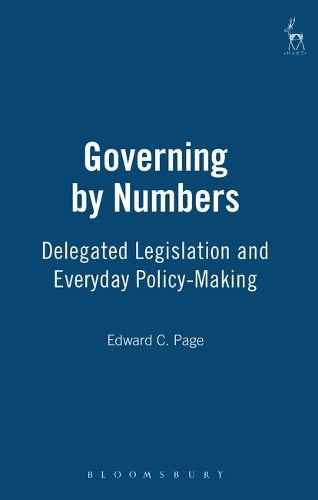
Governing by Numbers: Delegated Legislation and Everyday Policy-Making
(Hardback)
Publishing Details
Governing by Numbers: Delegated Legislation and Everyday Policy-Making
By (Author) Edward C Page
Bloomsbury Publishing PLC
Hart Publishing
16th March 2001
United Kingdom
Classifications
Tertiary Education
Non Fiction
Central / national / federal government
Political structures / systems: democracy
328.41
Physical Properties
Hardback
256
Width 156mm, Height 234mm, Spine 20mm
Description
An account of how delegated legislation - laws that do not pass through the full legislative scrutiny to which Acts of Parliament are subjected - is made. It is based on research involving an analysis of nearly 30,000 pieces of delegated legislation; detailed investigation of 46 recent regulations based on in-depth interviews with those involved in developing, writing and scrutinizing them and a major survey of nearly 400 interest groups. Delegated legislation is examined as a form of "everyday policy-making". It deals with important issues, from the level of welfare benefits to weapons exports, animal health and the prevention of air pollution, yet has been largely ignored in studies of the British political and administrative system. This book analyzes the distinctive character of everyday policy-making and the implications of how it works for our understanding of British democracy.
Reviews
Governing by numbers is an interesting and significant examination of policy-making and law-making at the operating level. well-executed study at the conclusion of the book, the reader feels that he has a firm grasp of what was heretofore an unknown and obscure arena of policy-making. The quality of the writing is also very good. The book is well organized and integrated.. Overall, this book makes a valuable contribution to our understanding of an important venue of policy-making. The field can benefit from systematic work like this, focused on the adoption of regulations that constitute the bulk of law that really impacts most people. -- Charles Wise, Indiana University * Governance *
Author Bio
Edward C Page is Sidney and Beatrice Webb Professor of Public Policy at the LSE and a Fellow of the British Academy.
